September 2023: Olive Tree

Volume VIII/Issue 6/September 2023


From The Editorial Desk
Pope Francis IS All In On Social Justice
The Pope's uncatholic agenda was on unusually bright display in his recent visit to a Catholic University in Portugal. Keying in on their youthful ambitions, he did not challenge the students to obey the Great Commission but urged them to enlist in his one-world Marxist agenda.
Newsmax reports:
“Pope Francis challenged the university students on Thursday to make the world a more just and inclusive place.”
And how were they to go about that? They were to:
“...use their privilege to combat global warming and economic inequalities. An academic degree should not be seen merely as a license to pursue personal well-being, but as a mandate to work for a more just and inclusive —that is, truly progressive— society,” he said.
When we unpack these buzzwords, the agenda emerges.
In the Old Testament, God said that he would create disruption of the weather when God's people strayed from His worship (see 1 Kings 8:35-37 & Deut. 11:13-17). The world today is choosing to blame modern industry instead of considering it as God's judgment.
The Pope's promotion of a “just” society is rooted in the Marxist concept of the oppressed and the oppressors. This concept is designed to create animosity between groups in the culture, hoping to create chaos and a revolution.
In communist socialism this is the bourgeois (ruling-class) versus proletariat (working-class).
In America this is racial—white privilege against oppressed people of color. If this can be used to create enough chaos worldwide then the people will clamor for order which will be gladly supplied by the Antichrist.
“Inclusivity” is also part of the plan to create chaos. This is the word that the homosexual steamroller uses for fuel. It has bulldozed itself into critical lists of people protected against “discrimination.” In this way, sin has been enshrined as a privileged position in both government and industry.
These quotes from Francis’ speech to the students clearly show that he has come out very strongly on the side of one-world government. And in this Pope, we see Satan’s perfect blending of both one-world government and one-world religion agendas.
Before he was Pope Francis, he was Jorge Bergoglio, a Jesuit Archbishop in Latin America. There we have a mixed record of his involvement with the Catholic Marxist movement of “liberation theology.”
If Francis was truly a Catholic, he would certainly use his pulpit against the worldwide evil of Marxist socialism. Marxism's daughter, socialism, is rapidly emerging worldwide as a candidate for the political platform of the final one-world system spoken of in scripture.
On the religion side, it has been obvious since the Ecumenical Council in the middle of the last century that the papacy is a champion of the coming one-world religion. Even most of the evangelical and main line Protestants are no longer “protesting” Rome’s unbiblical idolatry.
Francis has spent much of his travel time visiting world religious leaders to promote "friendship" and "respect" between men and women of different religious traditions.
On the official Vatican website, there is a calendar feature that shows all past and upcoming events that Pope Francis will be attending. Our search found dozens of documents recording meetings of the popes with the leaders of the world’s religions.
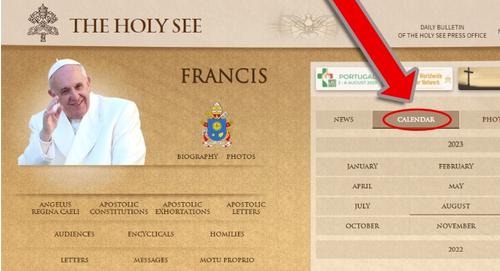
Official website of the "Holy" See
Now the framework of this one-world system is shaping up.
Brief Outline of the Episcopal Lineage of Pope Michael II
BISHOP ROGELIO DEL ROSARIO MARTINEZ, JR.
Events
|
Date |
Age |
Event |
Title |
|---|---|---|---|
|
31 October 1970 |
|
Born |
Sta. Cruz, Manila |
|
12 April 2003 |
33 |
Ordained Priest |
Novaliches, Quezon City |
|
6 February 2010 |
39 |
Ordained Bishop |
Bishop |
|
a priest for 8 years a bishop for 1 year |
Principal Consecrator: Archbishop Joel Galang Clemente Co-Consecrator: Bishop Heyward Bruce Ewart |
|
Episcopal Lineage / Apostolic Succession:
Bishop Rogelio Del Rosario Martinez, Jr. ( 2010 ) Archbishop Joel Galang Clemente ( 2009 ) Archbishop Robert J. Russel ( 2006 ) Bishop William Anthony Swyers ( 1992 ) Bishop John Kelly ( 1990 ) Bishop Patrick J. Cronin ( 1988 ) Patriarch Luis Fernando Castillo Mendez ( 1948 ) Bishop Carlos Duarte Costa ( 1924 ) Mariano Cardinal Rampolla del Tindaro ( 1882 ) Edward Henry Cardinal Howard ( 1872 ) Carlo Filippo Cardinal Fransoni ( 1822 ) Pietro Francesco Cardinal Galleffi ( 1819 ) Alessandro Cardinal Mattei ( 1777 ) Bernardino Cardinal Giraud ( 1767 ) Pope Carlo della Torre Rezzonico ( 1743 ) Pope Prospero Lorenzo Lambertini ( 1724 ) Pope Pietro Francesco ( Vincenzo Maria ) Orsini de Gravina, O.P. ( 1675 ) Paluzzo Cardinal Paluzzi Altieri Degli Albertoni ( 1666 ) Ulderico Cardinal Carpegna ( 1630 ) Luigi Cardinal Caetani ( 1622 ) Ludovico Cardinal Ludovisi ( 1621 ) Archbishop Galeazzo Sanvitale ( 1604 ) Girolamo Cardinal Bernerio O.P. ( 1586 ) Giulio Antonio Cardinal Santorio ( 1566 ) Scipione Cardinal Rebiba |
Principal Co-Consecrator of: Bishop Benjamin Baria Juson |

Changing the Truth for the Sake of Peace
When leaders within the Catholic Church oppose those who stand for the fundamental truths handed down by the Lord and His Apostles, they refer to them as unloving and too rigid. They end up devising a system of theology more congenial to their counterparts for the sake of peace. When anyone begins to counterpoise doctrines contrary to what has been learned, in an attempt to balance out our differences, they are on a fast track to apostasy- the “falling away” that Saint Paul warned us of. Unity at the cost of sound doctrine, for the sake of peace, may gain the praise of men, but it will also incur the wrath of God.
Jesus said, “Do not think that I came to send peace upon earth: I came not to send peace, but the sword.” (Matthew 10:34). If this is too rigid for you, then you are not a soldier of the cross, and you do not fight under the banner of Jesus Christ.
Jesus also said, “Love your enemies: do good to them that hate you: and pray for them that persecute and despitefully use you” (Matthew 5:44). Can we fight the fight of faith as well as have love for our enemies? Yes, and we can do it without compromising the truth. Jesus and the Apostles did, though they did not always gain the love of their enemies. Faithful ones have needed to give their lives for the truth; and we are to follow them.
“Woe to you when men shall speak well of you: for according to these things did their fathers to the false prophets.” Christ has sent a sword on the earth, not to kill, but to rightly divide the word of truth; not to make peace with error, but to expose the very joints and marrow of sin. “So then, brethren, stand firm and hold to the traditions which you were taught by us, either by word of mouth or by letter.” (II Thessalonians 2:15). “Let us hold fast the confession of our faith without wavering” (Hebrews 10:23).
We cannot hold fast our profession if we drop out “limiting ideas” and move forward with eagerness to meet the enemy with some new compromise for peace. You might as well throw a treat to the roaring lion that seeks to devour you. Our adversary the devil has declared war on Christ’s church. Have we forgotten that he is transformed into an angel of light? “Therefore, it is no great thing if his ministers be transformed as the ministers of justice.”
Modern-day innovators have redefined the truths of our faith to meet the needs of a worldy-minded church. This is so tactfully presented that many are carried away by their deceptiveness. Philosophy has replaced revelation and is used to make the interpretations of the Scriptures more suitable to the demands of society, under a pretense of love for the Lord, while forsaking obedience to Him. The fundamental way is too narrow for the modern church. Wolves in sheep clothing tell us we need a gospel that will accommodate the necessities of today’s world if we are to survive.
When psychologists analyze the problems in the Church, brought on by disobedience to God’s statutes, and give us non-Christian solutions on how to cope with those problems, they substitute their own wisdom for the perfect knowledge that God has given to us through His Word. Guided by such counselors, the church moves forward with plans of their own devising. They want God’s blessing but refuse His counsel. “My people would not hearken to my voice; and Israel would have none of me. So I gave them up unto their own hearts' lust: and they walked in their own counsels” (Psalms 81:11-12). What a horrible condition, to be given up to the discretion of our own wicked heart, which we cannot even see. And how doubly dangerous to passively receive the doctrines of men without seeking the true counsel of God.
Non-opposition to error is, in essence, opposition to truth. When the heart is predisposed to follow a path filled with evil and does not desire the truth, self-interest predominates over loyalty to God; thus, the Church creates for herself a world of complications. Does she turn to God, His Word, and Pope Michael II, His Vicar here on earth for guidance and adhere to sound doctrine, or does she heap to herself teachers, having itching ears? (II Timothy 4:3). One does not have to observe her conduct for long to find the answer!

The Church and Tribulation
For the first 300 years of Christianity, almost all Christians lived under anti-Christian rulers who often persecuted them and killed many of them. God, in His great wisdom, permitted people to persecute His children, for His glory. Even today, God has permitted some of His finest children to live under governments that persecute them. The church has always flourished best under persecution. But wherever the church experiences ease, comfort, and material prosperity, in most cases it becomes worldly. As long as we are in the world, we will face tribulation, persecution, and trials. So, we need not expect an easy time - either in our workplace or in our personal life - as we approach the end of this world.
"God is a jealous God and He will never allow us to trust in anything created".
Days of financial difficulties will come. So, we must learn to live simply even now. Those who live in luxury will find things to be very difficult in the coming days. We must be wise in saving money for the future, so that we do not have to depend on others. But our trust must not be in our savings, but in the Lord alone. God is a jealous God and He will never allow us to trust in anything created. God will shake the world's financial systems, so that those who trust in created things will be shaken. As Jesus said, we will see brothers betraying brothers and our family-members becoming our enemies (Matt.10:21).
There will be active persecution of believers in offices and in factories. All this will purify us and make us better Christians. 1 Peter 3:13 says that no-one can harm us if we always seek to do good. So, we must determine, by God's grace, to do good to everyone. We must love those who hate us, bless those who curse us, and pray for the forgiveness of those who persecute us. Then no-one will be able to harm us. Satan and his agents may cheat us, trouble us, harass us, rob us, injure us, imprison us, and even kill our bodies. But they will never be able to harm us spiritually.
We must prepare Christians all over the world to face persecution for their faith in the coming days.
There are four commands that our Lord has given us for such days:
1. “Be wise as serpents and harmless as doves” (Matt.10:16).
We must not be foolish in our witnessing, but wise. Our lives must speak for Christ, where we live and where we work. In our witness for the Lord, we must make it clear that we are speaking about a Person - Jesus Christ. Jesus will draw people to Himself, when He is lifted up (John 12:32). We must also be alert to discern non-Christian spies who will pretend to be interested in Christianity, when their real motive may be to accuse us of some word we use in order to take us to court for "forcibly trying to convert them". So we must be wise as well as loving - as Jesus was:
(a) “ But Jesus did not trust himself unto them, for that he knew all men,” (John 2:23-25). We must discern everyone.
(b) “Jesus was unwilling to walk in Judea because the Jews there were seeking to kill Him” (John 7:1). We should avoid unnecessary danger.
(c) “Pray for those who persecute you” (Matt.5:44). Be good to people. Do not become evil because others are evil.
2. “Live by every word that proceeds from the mouth of God” (Matt.4:4).
In times of persecution, the most important requirement is to be sensitive to the word that God is speaking to our hearts. We must develop the habit of a listening attitude to God throughout the day. The word we hear from God must then be believed and obeyed. Otherwise, it has no value. So, we must meditate more on the Word of God– for only thus will we be able to discern God's voice. And then we must “trust and obey”.
3. “Love one another as I have loved you. All men will know you are My disciples, when you love one another” (John 13:34, 35).
Both in our home and in our parishes, we must stop all judging of one another, all backbiting against one another, all quarrelling with each other, and all suspicion of one another. Discernment is a Divine quality, but suspicion is a Satanic quality. Now is the time to concentrate on fighting sin and Satan in our lives. Now is the time to actively pursue loving our marriage partners and loving our fellow-believers.
4. “In the world you WILL HAVE tribulation. But be bold. I have overcome the world” (John 16:33).
God is on the throne and He will never forsake His own. Satan was defeated 2000 years ago. We are the apple of God's eye, and so He will be a wall of fire around us (Zech.2:5,8). No weapon formed against us will ever prosper (Isa.54:17). So let us “be content with what we have, for God Himself has said, 'I will never leave you, nor will I ever forsake you'. So that we may boldly say, 'The Lord is my Helper. I will not be afraid. What will man do to me?'” (Heb.13:5,6).
Let us also pray, “Come soon, Lord Jesus” (Rev.22:20).

Saint Rose of Lima
Corrupt Michigan abortionist with lengthy criminal past dies at 74
(LifeSiteNews) – West Michigan’s most notorious abortionist Dr. Thomas Gordon has died, LifeSite has learned.
Gordon, who operated the only free-standing surgical abortion facility in the area, reportedly murdering more than 2,000 children every year, died on Thursday. His cause of death is not readily known. His body is currently at the medical examiner’s office for an autopsy, local pro-life activist Margaret Murphy told LifeSiteNews after confirming with county administrators this morning.
Gordon, 74, slaughtered innocent children since 1987 at his Heritage Clinic for Women at 320 East Fulton Street in Grand Rapids, the second largest city in the state. Republican president Gerald Ford represented the region in Congress from 1949 until 1973. Gordon previously operated an abortion facility just north of that location.
Gordon’s death was confirmed by multiple pro-life activists, one of whom contacted the clinic last week to make a fictitious appointment. The receptionist who answered the phone told her “Dr. Gordon has died.” She also worried that the office would permanently close.
“I’m grateful that going forward lives will be saved because abortionist Gordon will no longer be there,” Lynn Mills of Pro-Life Michigan told LifeSiteNews.
“He had every and many chances to repent and accept Christ into his heart. He remained cold and heartless towards the children living in the womb, killing them the very last day he lived. I’m so thankful to all of my pro-life friends who stood outside there in all kinds of weather to defend life and offer hope to moms.”
Gordon was a deeply troubled man who abused alcohol and repeatedly violated state laws in his personal and professional life.
In 1991, he was convicted of aggravated assault. In 2010, his wife filed a protection order after accusing him of beating her and holding a gun to her head while she slept. In 2011, he was charged with a felony with a dangerous weapon while under the influence. In 2016, he spent four days in jail for disorderly conduct.
Gordon also had his license suspended by the state in 2017 after failing to inform health regulators about his criminal record. However, he was allowed to re-open after paying a $10,000 fine and completing just 16 days of a rehabilitation program that was supposed to last six months.
His clinic was also cited in 2014 for violations related to careless handling of drugs, expired medications, and other unsanitary practices.
40 Days for Life volunteers have held prayerful protests outside the clinic, which is located just east of the downtown area, for many years. The Diocese’s Catholic bishop, David Walkowiak, has also participated in the protests. Pro-life activist Dr. Monica Miller performed a Red Rose Rescue at the facility in 2021.
Murphy told LifeSiteNews she and her fellow pro-lifers have had to endure harassment from abortion supporters, Antifa activists, as well as Gordon hundreds of times, but that they prayed for his conversion through it all.
If Gordon’s clinic closes, Grand Rapids will be left with one Planned Parenthood facility. Although surgical abortions are not performed at the location, staffers direct women who are seeking them to the resources they need. They also provide chemical abortion pills.
Earlier this year Michigan’s Democratic Governor Gretchen Whitmer signed into law a bill that allows abortions up until birth for practically any reason. Michigan voters also passed a ballot proposal in support of unlimited abortion with 56 percent support.
Pro-lifers across the state have responded by doing even more Red Rose Rescues and offering up their sufferings for the unborn. Catholics on the state’s east side have conducted Eucharistic processions outside abortion clinics and at the capitol.
French gov’t explores ‘possibilities’ of assisted suicide for people who can’t ‘physically express’ a request
(LifeSiteNews) — California assisted suicides are up 63 percent in one year according to the latest data from the state.
The latest report by the state includes the data for 2022 assisted suicides. It shows that “853 individuals died following their ingestion of the prescribed aid- in-dying drug(s), which includes 50 individuals who received prescriptions prior to 2022.”
In 2021, 522 people died after taking drugs prescribed under the law. This means there was a 63 percent increase between 2021 and 2022.
The report shows that not everyone who asked for the drugs took them to kill themselves.
A total of 1,270 individuals requested the suicide drugs in 2022, but only a confirmed 803 of those killed themselves. Another 173 died from an underlying illness while 294 have an “unknown ingestion status.” Approximately 92 percent were older than 60. A majority, over 60 percent, had a college degree and most had cancer.
The increase in assisted suicides follows changes to state law which makes removed some of the safeguards.
“The surge in assisted suicides came after California lawmakers in 2021 backed a law that shortened from 15 days to 48 hours the time needed to apply for a cocktail of suicide drugs,” the Daily Mail noted. “That law took effect in January.”
“It’s no wonder that the number of assisted suicides soared in the year after the California legislature effectively removed the original 15-day cooling-off period,” Matt Valliere, director of the Patients’ Rights Action Fund, told the British publication.
“Most Medi-Cal patients cannot get a mental health consult in less than 72 hours and are not guaranteed palliative care, but now, they can get suicide drugs in 48 hours and the state will pay for it every time,” Valliere said.
Hawaii has followed suit with California, making it easier and quicker for individuals who plan to kill themselves. “Democrat Gov. Josh Green, who is a retired oncologist, signed a law reducing that period by 75 percent, to just five days,” LifeSiteNews previously reported. “The new law also lets doctors waive that period entirely if a patient is terminally ill and expected to die sooner than five days.”
So-called “physician-assisted suicide” has drawn opposition from opponents across the political spectrum, including not just Catholics and conservative Protestants, but also disability rights activists and the American Medical Association, which typically supports liberal social issues such as abortion and transgenderism.
“Physician-assisted suicide is fundamentally incompatible with the physician’s role as healer, would be difficult or impossible to control, and would pose serious societal risks,” the AMA Code of Ethics states.
The Catholic Church condemns both euthanasia and assisted suicide.
FBI official who oversaw memo targeting traditional Catholics testifies before Congress
WASHINGTON, D.C. (LifeSiteNews) — An FBI agent who oversaw a highly controversial memo targeting Traditional Catholics for surveillance testified on the subject before the House Judiciary Committee on Thursday.
Stanley Meador, the special agent in charge at the FBI’s Richmond Field Office in Virginia, spoke with the committee “for several hours in a behind-closed-doors interview,” according to two sources familiar with the matter, The Washington Examiner reported Thursday, although details about the interview have not been publicized.
In an April 28 letter to the committee, the FBI noted that Meador was involved in dealing with the “fallout” from the memo, which included “retracting it” and meeting with local Catholic leaders about it, according to one of the Examiner’s sources.
In February, FBI whistleblower Kyle Seraphin leaked to the public an eight-page document identifying “Radical Traditionalist Catholic Ideology” as a magnet for “violent extremists,” alleging that “white nationalists” are increasingly making common cause online with attendees of the Latin Mass.
The memo, written by an FBI analyst in Richmond, Virginia, asserts that “increasingly observed interest of Racially or Ethnically Motivated Violent Extremists (RMVE) in Radical Traditionalist Catholic (RTC) Ideology almost certainly presents new opportunities for threat mitigation” via “tripwire and source development.”
That is, the memo called for spying on and infiltrating traditional Roman Catholic groups, in particular, churches served by the Traditional Society of St. Pius X (SSPX).
The document prompted a widespread outcry from Catholics and even Protestants across the country, who lambasted the creation of the document for violating the First Amendment by targeting Americans as “threats” due to particular religious beliefs.
The FBI thereafter retracted the memo and said it would investigate why it was written.
“While our standard practice is not to comment on specific intelligence products, this particular field office product – disseminated only within the FBI – regarding racially or ethnically motivated violent extremism does not meet the exacting standards of the FBI,” the statement reads.
Whistleblower Seraphin thereafter suggested the agency only backed off because it had been held to account. “The FBI doesn’t confirm information, but they confirmed this,” he wrote on Twitter. “Because they were called out. Not because they would NEVER approve it. They approved it and are embarrassed. This is the only way.”
Earlier this month, House Judiciary Committee Chairman Jim Jordan (R-Ohio) released a letter addressed to Wray announcing that documents that he recently obtained from the FBI indicate that its field office in Richmond, Virginia, coordinated with two other offices across the country to spy on Traditional Catholics.
The finding appears to contradict Wray’s previous testimony that the FBI memo targeting Traditional Catholics was only utilized at the one location in Richmond.
Jordan called on Wray to “amend” his testimony and to more fully “explain the nature and scope of the FBI’s assessment of traditional Catholics as potential domestic terrorists.”
Prior to being named special agent in charge of the Richmond Field Office by FBI Director Christopher Wray, Meador served as the chief of staff to the deputy director at FBI Headquarters in Washington.
California mom says she was fired from job after speaking out against LGBT sex-ed content in schools
BENICIA, California (LifeSiteNews) — A California mom of three says she was fired from her job less than two weeks after triggering outrage from local leftists for speaking out against a new sexual education curriculum during a school board meeting earlier this year.
“As a mom of three, I’m an advocate for my children, so I pay attention to what they are teaching in the schools,” Janet Roberson said in a short video posted to Twitter/X detailing her experiences.
The Daily Wire reported that Roberson, formerly an independent contractor with Compass, a major New York-based real estate company, sparked outrage from leftist community members after she addressed the Benicia Unified School District board in late April to speak out against the presence of inappropriate gender ideology and sexual content she said was present in her school’s newly approved sex-ed curriculum. Parents are allowed to opt their children out of the lessons, but Roberson said the content is still worrisome.
“The new curriculum encourages gender confusion, not gender clarification,” Roberson argued during the meeting. “The notion that a girl can decide to be a boy, or a boy can decide to be a girl, is not true and should not be taught.”
On her website, the Bay Area mom argues that “Presenting sexual degeneracy and promiscuity as normal, natural, and healthy, particularly to children, is a communist goal to undermine and subdue American values.”
Shortly after speaking at the Benicia school board meeting, Roberson was targeted by community members, one of whom sent an article to a local newspaper outing her as a Compass real estate agent and accusing her of being “bigoted” and of promoting “racism” and “transphobia.” Another individual wrote a letter to Compass accusing Roberson of being “anti-equity, anti-trans, anti-Black, and anti-choice” and suggesting that she ought to be disciplined or fired.
Less than two weeks later, on May 1, Roberson said she received a phone call from a regional corporate director informing her that she could “no longer do business as a Compass agent.” Robertson said she tried to argue, pointing out that her work performance had been exceptional, but the executive allegedly told her “This has nothing to do with business.”
When she pushed back, asking “if you’re saying this has nothing to do with business, what does this have to do with?” she said he replied with “words to the effect of, ‘well, the past week has been a lot.’”
“My entire business, everything I had invested, was gone, just like that,” Roberson said in her video posted to social media. “How can it be that, in America, a mom who speaks at a school board meeting can be targeted and canceled, losing her livelihood? What does that say about our community?”
After Roberson’s story was shared on social media, prominent accounts like Libs of TikTok and Twitter/X owner Elon Musk demanded answers from Compass concerning the reasons for Roberson’s firing.
In response, Compass clarified that Roberson “was not an employee of Compass” but “an independent contractor who worked on an agent team, and the decision to disassociate her license was made at the request of her team’s owner in April 2023.”
Libs of TikTok asked Compass whether Roberson would be able to continue working as an independent contractor for a different Compass team, but the real estate company did not immediately provide a public response.
In a statement to Newsweek, the Benicia Unified School District said it “remains open to engaging our community in dialogue about our district and program” but does “not engage in matters outside the scope of our work.”
The district also wished Roberson “and her family an outstanding school year.”
For Roberson, even losing her job was worth it to “speak the truth and to stand for freedom and for what our Constitution stands for.”
“I would do it again,” Roberson told The Daily Wire. “For me to lose a job is horrible and not okay, but I would be willing to do it again.”
As LifeSiteNews has extensively reported, parents nationwide have become concerned amid revelations that young children have been actively being encouraged in their classrooms to accept and even adopt “transgender,” “gender-fluid,” or “non-binary” identities. Transgender identification among children has spiked in recent years, and the rates of surgical mutilation for minors have also risen astronomically.
Parents and conservative lawmakers have reacted by working together at the grassroots and legislative levels to craft legislation to require schools to notify families of a child’s gender confusion, pull sexually explicit and pro-LGBT curricula and materials from classrooms and school libraries, protect girls’ sports and spaces, and ban sexualized performances targeting children.

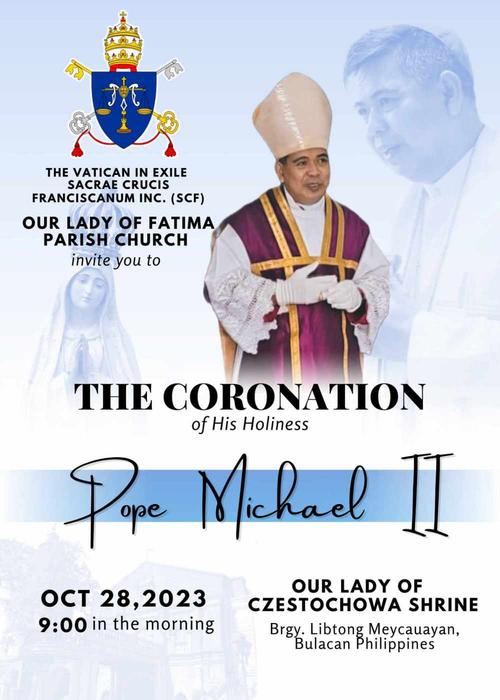

Frequently Asked Questions

Are People In Hell Now?
Given the reality and nature of hell, it raises the question: are people in hell now? Luke 16 is our best window into what happens to people when they die. In Jesus’ account of Lazarus and the rich man, he answers whether people are currently in hell, a place of conscious torment.
There was a certain rich man, who was clothed in purple and fine linen; and feasted sumptuously every day. And there was a certain beggar, named Lazarus, who lay at his gate, full of sores, Desiring to be filled with the crumbs that fell from the rich man's table, and no one did give him; moreover the dogs came, and licked his sores. And it came to pass, that the beggar died, and was carried by the angels into Abraham's bosom. And the rich man also died: and he was buried; And in hell he lifted up his eyes, being in torments, and seeth Abraham afar off, and Lazarus in his bosom: And he cried, and said: Father Abraham, have mercy on me, and send Lazarus, that he may dip the tip of his finger in water, to cool my tongue: for I am tormented in this flame. (Luke 16:19–24).
We learn from this true narrative when the rich man died, he found himself in Hades (Greek: ᾅδῃ), or hell. The rich man did not enter a kind of sleep known as “soul sleep,” as some groups teach. Instead, he immediately went to a place of judgment. Just as this man found himself in hell shortly after his physical death, we can infer from this passage that people are in hell right now. At the end of time, we see a description of the final state of judgment, “And hell and death were cast into the lake of fire. This is the second death.” (Revelation 20:14), This comes later, but it is clear that those who have not repented of their sins, have not become disciples of Christ, and have not entered into a relationship with Jesus, through the sacramental waters of baptism, they didn’t enter into a relationship with Him.
For answers to more frequently asked questions, click here: https://www.vaticaninexile.com/frequently_asked_questions.php
The Pope Speaks

We have a Perfect God
On the night our Lord Jesus Christ was arrested in Gethsemane, after Judas Iscariot kissed Him, Peter, the first Pope, pulled out his sword and cut off the ear of the Roman Soldier. Immediately the Lord reprimand Peter, " keep your sword, Peter, don't you know I can call thousands of angels to protect and defend me? " (paraphrasing)
In Matthew's gospel, Peter was rebuked by the Lord, " get out from me, Satan. You are thinking based on men not according to God's."
In both instances, we are taught by the Holy Gospel that the Lord's thought are not our thoughts. The logic of God is far different from men. ( Book of Isaiah). And so what matters is our readiness to submit ones will to Him. What matters is our willingness to heed His call not because we are ready or not ready.
When i was asked by Fr. Francis Dominic during the conclave, "Do you accept your election? " i said " i accept " immediately i added , Im not perfect ! Just to highlight that i may not be the ideal man for the job, i may not be the ideal man for the office but we serve a perfect God. And I believe God shall supply the necessary grace for what is lacking in me to accomplish what has to be done. More often, we are being called by the Lord, yet the problem lies on our hesitancy to heed His call immediately. We make so many excuses. "Lord, iam not yet ready , i do not have a Master's degree, i don't have enough money, i don't have enough training ". But those excuses are not the most important thing but our obedience! Remember, " it is obedience that I want not sacrifice. "( Hosea )
The book of Psalm says, " Today if you hear the voice of the Lord, harden not your hearts. " ( Psalm 95 ). What matters is obedience. What matters is listening to the Lord. Obedience is listening. Listening is obedience. In the gospel according to Luke, the Archangel Gabriel was sent by God to Mary, a 14 year old girl. Mary said," fiat voluntas tua. ", "Be it done unto me according to thy word." ( Luke 1:38 ). Mary did not question a lot. Mary did not make any excuses, " Iam 14 years old, I am not rich, I am not perfect " She only said, " Iam the handmaid of the Lord... "
Nothing is impossible with God. Out of the desert, water flows. Out of two fish and five loaves of bread, 4000 people ate. Out of barren woman, a child is born. Imprisoned yet released by the angel. And so, even though we are not perfect, we serve a God who is perfect. And so, what is lacking, He will supply. It's alright not to be alright. It's alright not to be okay. By our weakness power reaches perfection. By our woundedness, the power of God is made manifest. Let us offer to the Lord what we have and He shall multiply everything.
What matters is self-surrender to the living God. The Lord said to Peter in John 21, " when you are young, you go where you want to go, but now that you are old, you will be lead to places you did not want to go. " It simply means iam crucified with Christ therefore I no longer live, Jesus Christ remain in me. " ( Galatians 3:20 ).That is the reason why the Pope chooses his new name. To remind him that he is already died in the flesh and he is now begotten by God. He is now a new creature.


St. Francis de Sales' Introduction to the Devout Life

CHAPTER XVII
Ninth Meditation - On the Choice upon to you between Heaven and Hell
Preparation.
1. Place yourself in the presence of God.
2. Humble yourself before Him, and ask His inspiration.
Considerations.
1. Imagine yourself alone with your good angel in an open plain, as was Tobit on his way to Rages. Suppose the Angel to set before you Paradise, full of delights and joys; and on the other hand Hell, with all its torments. Contemplate both, kneeling in imagination before your guardian Angel. Consider that you are most truly standing between Hell and Paradise, and that both the one and the other are open to receive you, according to your own choice.
2. Consider that the choice you make in this life will last for ever in the next.
3. Consider too, that while both are open to receive you according to your choice, yet God, Who is prepared to give the one by reason of His Justice, the other by reason of His Mercy, all the while desires unspeakably that you should select Paradise; and your good Angel is urging you with all his might to do so, offering you countless graces on God’s part, countless helps to attain to it.
4. Consider that Jesus Christ, enthroned in Heaven, looks down upon you in loving invitation: “O beloved one, come unto Me, and joy for ever in the eternal blessedness of My Love!” Behold His mother yearning over you with maternal tenderness—” Courage, my child, do not despise the Goodness of my Son, or my earnest prayers for thy salvation.” Behold the Saints, who have left you their example, the millions of holy souls who long after you, desiring earnestly that you may one day be for ever joined to them in their song of praise, urging upon you that the road to Heaven is not so hard to find as the world would have you think. “Press on boldly, dear friend,”—they cry. “Whoso will ponder well the path by which we came hither, will discover that we attained to these present delights by sweeter joys than any this world can give.”
The Choice
1. O Hell, I abhor thee now and for ever; I abhor thy griefs and torments, thine endless misery, the unceasing blasphemies and maledictions which thou pourest out upon my God;—and turning to thee, O blessed Paradise, eternal glory, unfading happiness, I choose thee for ever as my abode, thy glorious mansions, thy precious and abiding tabernacles. O my God, I bless Thy Mercy which gives me the power to choose—O Jesus, Saviour, I accept Thine Eternal Love, and praise Thee for the promise Thou hast given me of a place prepared for me in that blessed New Jerusalem, where I shall love and bless Thee for ever.
Conclusion.
1. Dwell lovingly upon the example set before you by the Blessed Virgin and the Saints, and strive to follow where they point you. Give yourself up to your guardian Angel, that he may be your guide, and gird up your courage anew to make this choice.
Saints from East and West
September 18 - Saint Joseph of Cupertino
Joseph Desa was born June 17, 1603, at Cupertino, a small village between Brindisi and Otranto. His parents were poor and unfortunate. Joseph himself was born in a shed at the back of the house, because his father, a carpenter, was unable to pay his debts and the home was being sold up. His childhood was unhappy. His widowed mother looked on him as a nuisance and a burden, and treated him with great severity, and he developed an extreme absentmindedness and inertia. He would forget his meals, and when reminded of them say simply, "I forgot," and wander open-mouthed in an aimless way about the village so that he earned the nick-name of "Boccaperta," the gaper. He had a hot temper, which made him more unpopular, but was exemplary and even precocious in his religious duties. When the time came for him to try and earn his own living, Joseph was bound apprentice to a shoemaker, which trade he applied himself to for some time, but without any success.
When he was seventeen he presented himself to be received amongst the Conventual Franciscans, but they refused to have him. Then he went to the Capuchins, and they took him as a lay-brother; but after eight months he was dismissed as unequal to the duties of the order: his clumsiness and preoccupation made him an apparently impossible subject, for he dropped piles of plates and dishes on the refectory floor, forgot to do things he was told, and could not be trusted even to make up the kitchen fire. Joseph then turned for help to a wealthy uncle, who curtly refused to aid an obvious good-for-nothing, and the young man returned home in despair and misery. His mother was not at all pleased to see him on her hands again and used her influence with her brother, a Conventual Franciscan, to have him accepted by the friars of his order at Grottella as a servant. He was given a tertiary habit and put to work in the stables. Now a change seems to have come over Joseph; at any rate he was more successful in his duties, and his humility, his sweetness, his love of mortification and penance gained him so much regard that in 1625 it was resolved he should be admitted amongst the religious of the choir, that he might qualify himself for holy orders.
Joseph therefore began his novitiate, and his virtues rendered him an object of admiration; but his lack of progress in studies was also remarked. Try as he would, the extent of his human accomplishments was to read badly and to write worse. He had no gift of eloquence or for exposition, the one text on which he had something to say being, "Blessed is the womb that bore thee." When he came up for examination for the diaconate the bishop opened the gospels at random and his eye fell on that text: he asked Brother Joseph to expound it, which he did well. When it was a question of the priesthood, the first candidates were so satisfactory that the remainder, Joseph among them, were passed without examination.
From the time of his ordination St Joseph's life was one long succession of ecstasies, miracles of healing and supernatural happenings on a scale not paralleled in the reasonably authenticated life of any other saint. Anything that in any way could be particularly referred to God or the mysteries of religion was liable to ravish him from his senses and make him oblivious to what was going on around him; the absent-mindedness and abstraction of his childhood now had an end and a purpose clearly seen. Especially during Mass or the Divine Office he would be lifted off his feet in rapture. During the seventeen years he remained at Grottella over seventy occasions are recorded of his levitation, the most marvellous being when the friars were building a calvary. The middle cross of the group was thirty-six feet high and correspondingly heavy, defying the efforts of ten men to lift it. St Joseph is said to have "flown" seventy yards from the door of the house to the cross, picked it up in his arms as if it were a straw, and deposited it in its place. This staggering feat is not attested by an eye-witness, and, in common with most of his earlier marvels, was recorded only after his death, when plenty of time had elapsed in which events could be exaggerated and legends arise. But, whatever their exact nature and extent, the daily life of Saint Joseph was surrounded by such disturbing phenomena that for thirty-five years he was not allowed to celebrate Mass in public, to keep choir, to take his meals with his brethren, or to attend processions and other public functions.
In 1653, for reasons which are not known, the Inquisition of Perugia was instructed to remove Saint Joseph from the care of his own order and put him in charge of Capuchins at a lonely friary among the hills of Pietrarossa, where he was to live in the strictest seclusion. "Have I got to go to prison then?" he asked, and departed at once - leaving his hat, his cloak, his breviary and his spectacles hehind him. To prison, in effect, he had gone. He was not allowed to leave the convent enclosure, to speak to anyone but the friars, to write or to receive letters; he was completely cut off from the world. Apart from wondering why he should be sundered from his fellow Conventuals and treated like a criminal, this life must have been particularly satisfactory to Saint Joseph. But soon his whereabouts was discovered and pilgrims flocked to the place; whereupon he was spirited away to lead the same sort of life with the Capuchins of Fossombrone. The rest of his life was spent like this. When in 1655 the chapter general of the Conventual Franciscans asked for the return of their saint to Assisi, Pope Alexander VI I replied that one Saint Francis at Assisi was enough, but in 1657 he was allowed to go to the Conventual house at Osimo. Here the seclusion was, however, even more strict, and only selected religious were allowed to visit him in his cell. But all this time, and till the end, supernatural manifestations were his daily portion: he was in effect deserted by man but God was ever more clearly with him. He fell sick on August 10, 1663, and knew that his end was at hand; five weeks later he died, at the age of sixty. He was canonized in 1767.

Advice You Can Bank On
A Catholic Perspective On Finances
One Card or Many Cards?
It has been my position and practice for years to have only one credit card. There are lots of benefits to this practice: racking up bonus miles, less vulnerability to run up debt, easier to track one account, to name just a few.
Someone recently stole our credit card number. We received an alert and initially thought it was a scam. Upon returning home, we checked our online account. Sure enough, someone was having fun shopping at Nordstrom’s in a completely different part of the country.
My position on having just one card has officially changed! If you are a responsible spender, pay your bill in full each month, or maintain a very low balance, you should consider a second credit card—not many credit cards, just two! The average American has four cards; some have many more. Manish Dhameja of India holds a Guinness World Record for 1638 cards in 2021.
Backup Card
A backup card is important in the event you lose a card or, like me, have your account number stolen. Until my replacement card is received, I am forced to use cash or a debit card. I do not like this option, especially when traveling. So before you read on, be sure and see my qualifiers above. If—only if—you meet those conditions, having two cards has multiple benefits.
Access Different Networks
Visa, Mastercard, Discover, and American Express are the four payment networks. Visa and Mastercard are widely accepted, Discover finds acceptance in the United States but not internationally, and American Express has the lowest acceptance globally. It is suggested that you carry cards from different networks.
Earn Rewards
Combine cards to earn higher rewards on your spending. Analyze the rewards offered by cards to maximize your returns. Cards vary. Some offer rewards for travel, cash back, or zero interest.
Your spending habits will influence your decision. We like to earn travel miles on our cards.
Reduce Credit Utilization Ratio
How much credit you are using impacts your credit score. Lenders like to see you are not maxing out your available credit. Another card can reduce your ratio (balance-to-credit limit) by spreading your purchases over multiple cards. This increases your credit score unless undisciplined spending is an issue.
Balance Transfer
You can save money by moving the balance of a high-interest card to one with a low rate. Just make sure you read the fine print to avoid penalties and fees.
Emergencies
Two cards can prevent a large expense from hurting your credit score. It can also help if you reach a limit on one card in a time of distress. Just make sure you have the means to pay them off, or the penalties will far outweigh any rewards/benefits.
The Negatives of Two or More Cards
Annual Fees
Easy to overspend
More to organize
Credit checks when opening a new card

 Family Matters
Family Matters
Why Are We Dating?
The question of motives for dating at first may seem obvious and unimportant. But our concept of dating seems to have suffered considerably from not weighing motivation honestly, Scripturally, and rationally, Let’s begin with noting what the Bibles says.
And the Lord God said: It is not good for man to be alone: let us make him a help meet for him. Wherefore a man shall leave father and mother, and shall cleave to his wife: and they shall be two in one flesh (Genesis 2:18, 24).
He that hath found a good wife, hath found a good thing, and shall receive favor from the Lord. House and riches are given by parents: but a prudent wife is properly from the Lord (Proverbs 18:22; 19:14).
There are eunuchs, who have made themselves eunuchs for the kingdom of heaven (Matthew 19:12).
But I would have you to be without carefulness. He that is without a wife, care for the things that belong to the Lord, how he may please God (I Corinthians 7:32).
For this is the will of God, your sanctification; that you should abstain from fornication; That every one of you should know how to possess his vessel in sanctification and honour: Not in the passion of lust, like the Gentiles that know not God (I Thessalonians 4:3-5).
Ancient and modern scholars are not in agreement over Paul's precise meaning in using the word "vessel."
-
The word could refer to one's body as Paul used the word in his letter to the Corinthians: But we have this treasure in earthen vessels, that the excellency may be of the power of God, and not of us. (2 Corinthians 4:7).
-
Or the word could refer to one's wife as St. Peter wrote: Likewise, you husbands should love with your wives in understanding, showing honor to the weaker female [weaker vessel], since we are joint heirs of the gift of life... (I Peter 3:7).
If Paul is using the first meaning, he is referring to chastity and self-control in contrast to the sexual immorality (lust) of the pagans (St. John Chrysostom and Tertullian). If his reference is to the second meaning, he is advocating an honorable marriage. Marriage is the right step toward purity in sexual morality that is not an outlet for lust but a pure and holy partnership in life with the Lord (St. Augustine, St. Thomas Aquinas). Either way, Paul is advocating for the Thessalonian Christians to master human sexuality and direct them in a holy direction as God intended when He gave humans the gift of fertility in holy matrimony (Genesis 1:28; 2:24-25).
On the basis of these Scriptures, we will briefly discuss three propositions about motivation for dating.
Proposition 1: Pleasing God must always be our highest motivation.
It is only stating the obvious when we note that many people who are dating, allow lesser things than God’s will to motivate their relationship. Some want companionship above all else. Some are after security. Some are merely following biological urges.
The Christan man and woman will need to surrender their dating plans to the will of God. This does not primarily mean asking the simple (but important question, “Is it God’s will that I date Sue?” Rather, it means honestly considering dating and marriage in light of God’s will for one’s life. Can anyone make practical and specific decisions about dating until he has sought God’s direction for life? Unfortunately, many people dating, have never seriously asked the following questions: What work do I sense God leading me to? How will my life best contribute to the kingdom of God? Is there preparation which I need in view of God’s leading for my life? The answer to these questions will affect not only WHOM I should date, but WHEN I should date at all.
As long as God’s will is not given this kind of priority, marriage (and life itself) is certain not to deliver fulfillment according to our expectations. This point can hardly be overstressed. It speaks to many of the hollow marriages of our day, even within the Church.
Proposition 2: Marriage is the only proper motivation for dating.
On the surface this may seem obvious and incidental. But it is likely the most overlooked point made here, and perhaps the most controversial as well. Where dating becomes merely a casual event, a pleasant way to spend an evening, a fun thing to do on a weekend away from home, or dating becomes a way of helping someone out of spiritual, emotional, or social trouble, those involved have serious misconceptions about dating. This is NOT to say that from the first date, a couple must be convinced that they are for each other. It IS to express warning, however, against dating for motivations less than marriage.
Following is a list of four common ways in which this point is ignored:
-
Dating many partners. For a man or woman to date numerous partners for present fun, expressly not wanting to “get serious” with anyone yet, erodes the foundation for his or her faithfulness in the future.
-
Dating one person repeatedly, simply “as friends.” To date with this “no strings attached” mentality is but to ignore reality. Ties are being formed which, if broken, will inevitably bring hurt.
-
Dating to help someone with problems. Major violations of integrity occur when the appeal of companionship is mingled with the working of the Holy Spirit. Commitments made to God under the pull of infatuation are never genuine. What appears to be God-ward progress is so confused with girl-ward or boy-ward progress that spiritual growth is virtually impossible to determine. The only safe standard is never to date with the goal of helping someone out of his spiritual problems.
A related violation in a non-dating relationship can occur when friends of the opposite sex “counsel” one another about personal, spiritual, or social problems. As a result of the caring, the concern, and the time spent together, either the counselor or the counselee or both form emotional attachments for each other, often without intention or awareness. In the wake of such “help” are many hurting people.
All of this should warn us that there are proper and improper ways to help someone with personal and spiritual problems. Dating should not be pursued for that purpose.
-
Dating too early. This will be controversial, but people should not begin dating until they are ready for marriage. To begin dating years before one would want to be married inevitably puts unwholesome pressures on the dating couple. The common inability to wait in dating is responsible for much of the common inability to endure in marriage. Both reflect immaturity and self-centeredness. The years before marriage are years that are necessary for emotional, personal, and spiritual maturity. Dating during this teenage maturing time can actually sidetrack one from proper development. Where young men and women wait to begin dating until they are basically ready for marriage, they have the freedom to steer their courtship wisely toward marriage. (It is to be recognized that “ready for marriage” will mean different things to different people. What we mean by it will be clarified in following articles. The point of concern remains: Too much dating is being done too early.)
Proposition 3: The urge for companionship is an inborn motivation which must either be answered by God directed marriages or redirected to a higher motivation.
God made us male and female, A man desires a wife; a woman desires a husband. As we noted in Proposition 1, however, too much emphasis on this desire can actually undermine the enjoyment of marriage. Where marriage is not one’s experience, either by choice or by circumstance, a godly man and a godly woman will need to channel the very normal urges for companionship into other pursuits.
We mention this under motivation for dating because failure to understand this can lead to extreme frustration for those who are not dating but wish to be. We are motivated by our very makeup to seek companionship.
That drive is honorable and not to be despised, but it can be, and sometimes must be, superseded by higher motivations to keep it pure and wholesome. Many years of a person’s life can be robbed of joy and fulfillment by yearning for what might be and ignoring what can be.

Lamp and Light Commentary

"Thy word is a lamp to my feet, and a light to my paths." (Psalms 119:105)
Genesis 24-25 Dating or Courtship? And Whats the Difference?
Before Abraham finished his life, we read in Chapter 24 of his concern for his son. He sent his servant to go and find a bride for his son. There are many marriages mentioned in Scripture,but only two marriages that we see clearly as being God-ordained. One was Adam's Eve was definitely God's choice. The other was Isaac's marriage. Rebekah was God's choice too. If someone asked me if arranged marriages was scriptural. I would have to say “Yes! I believe in marriages arranged by God!” God may arrange it through one's parents (as in Issac's case or apart from parents (as in Adam's case. The thing that matters is that it must be arrange by God.)
If you are a godly father, you will have a concern for your children's marriages. If you as a young man are fortunate enough to have a godly father, I would say that you should tale his advice very seriously. If such a godly father says “No,” to the one you want to marry, wait. God may be testing you there. Your father's “No” may only be for a time. After God sees that you are willing to respect your godly father's advice, He will give you the partner He has chosen.
Before we continue on in Chapter 24 of Genesis, let me spend a few moments on biblical principles concerning Courtship and how, unlike Dating, It is the First Step Toward Marriage.
What Is Courtship?
Understand how courtship differs from dating
Courtship is a relationship between a man and a woman in which they seek to determine if it is God’s will for them to marry each other. Under the protection, guidance, and blessing of parents or mentors, the couple concentrates on developing a deep friendship that could lead to marriage, as they discern their readiness for marriage and God’s timing for their marriage.
Have confidence in the Lord with all thy heart, and lean not upon thy own prudence. In all thy ways think on him, and he will direct thy steps. Be not wise in thy own conceit: fear God, and depart from evil: (Proverbs 3:5–7.)
Courtship is a choice to avoid temptation and experience the blessings of purity. It is a choice to not emotionally give away your heart, piece by piece, to many others through casual dating relationships and instead to give your whole heart to the your husband or wife.
It is a choice to wait for God’s best, for His glory. It is a decision to walk by faith, to trust in God, to honor others above yourself, and to believe that God will deal bountifully with you, because He is love.
For we walk by faith, and not by sight. (II Corinthians 5:7)
And let them trust in thee who know thy name: for thou hast not forsaken them that seek thee, O Lord. (Psalm 9:11)
Loving one another with the charity of brotherhood, with honour preventing (preferring) one another. (Romans 12:10)
He that loveth not, knoweth not God: for God is charity. (I John 4:8)
Because each individual, family, and set of circumstances is unique, each courtship will be unique. While those who choose courtship will hold to general guidelines for the relationship, their specific choices about when, where, and how to court may differ according to their needs and circumstances.
If, during the courtship, one or both parties realize that marriage is not God’s will and they end the relationship, the courtship has not failed. On the contrary, the courtship was successful, because God gave the direction that was sought through it.
Although the termination of a courtship most likely will be painful, damage and hurt—which can lead to bitterness—can be avoided. Both parties, as well as their families and all the people who love them, should continue to trust in the Lord and accept the grace He gives to deal with any disappointment or unfulfilled hopes.
Being justified therefore by faith, let us have peace with God, through our Lord Jesus Christ: By whom also we have access through faith into this grace, wherein we stand, and glory in the hope of the glory of the sons of God. And not only so; but we glory also in tribulations, knowing that tribulation worketh patience; And patience trial; and trial hope; And hope confoundeth not: because the charity of God is poured forth in our hearts, by the Holy Ghost, who is given to us. (Romans 5:1–5.)
Let love be without dissimulation. Hating that which is evil, cleaving to that which is good. Loving one another with the charity of brotherhood, with honour preventing one another. (Romans 12:9–10).
The Difference Between Dating and Courtship
Purpose of the Relationship
The main difference between dating and courtship involves the goals to be reached by spending time with a potential marriage partner. Men and women who choose to date often have no commitment to consider marrying the other person. Maturity and readiness for marriage are not considerations in the decision to date. Instead, couples usually date with the selfish goals of having fun and enjoying romantic attachments.
In contrast, courtship is undertaken only when both parties are prepared to make a commitment to marriage. Dating normally tries to answer the question, How can I find the one who will make me happy? Courtship strives to answer the question, How can I honor God and discern His direction regarding my Husband or wife?
Accountability to Authorities
In a dating relationship, there is little if any accountability for the couple and little or no interaction with family members. The dating couple is merely attracted to one another in some way and often pursues an exclusive relationship that is independent of others’ influence or counsel. Since the boundaries of the relationship are self-determined, the couple may easily succumb to temptation and fail to consider their responsibility to honor each other in purity and genuine love.
A couple participating in courtship seeks the accountability of their parents or other mentors. As they establish guidelines for their relationship, they can more easily recognize that God also holds them responsible to honor one another. Receiving God’s grace and the support of others strengthens them to maintain their commitment to purity.
Exposure to Temptation
In a dating relationship, self-gratification is normally the basis of the relationship. Instead of focusing on God’s pleasure, the couple is often looking for personal pleasure. This oblivious self-centeredness can lead only to dissatisfaction, promoting an attitude of lust (taking what I want) rather than the Scriptural attitude of love (giving unselfishly to others).
Consequently, dating can open the door to many temptations. If defrauding (stirring up desires that cannot be justifiably satisfied) occurs, the couple can foolishly and tragically give away both emotional and physical affections that should have been reserved for a husband or wife. Thus, in a dating relationship, frequently intimacy precedes commitment.
A courting couple can evade numerous temptations by the choice to be held accountable to God-given authorities. The dangers of defrauding can be avoided more successfully, and an honest, open friendship can be nurtured and protected. Thus, in courtship, commitment precedes intimacy.
Focus on God’s Kingdom
Since one of the most important decisions we will make is the decision of marriage, we should make every effort to know and do God’s will in this area. A dating relationship is usually based only on what the dating couple presently knows about each other. In contrast, a Biblical courtship is based on what God knows about each partner and on His plans for their futures.
Jesus gave this instruction with a promise:
“Seek ye therefore first the kingdom of God, and his justice, and all these things shall be added unto you.”(Matthew 6:33).
When a person makes a growing relationship with the Lord Jesus Christ the foundation of all decisions—as he or she seeks God’s kingdom—God will provide all that is needed, including the marriage partner prepared by God just for that person.
He that hath found a good wife, hath found a good thing, and shall receive a pleasure from the Lord. He that driveth away a good wife, driveth away a good thing: but he that keepeth an adulteress, is foolish and wicked. (Proverbs 18:22)
House and riches are given by parents: but a prudent wife is properly from the Lord. (Proverbs 19:14)
Concepts to consider for a successful courtship
Every individual, family, and situation is unique, and therefore, the process of each courtship is unique. What worked well for one couple might not be the best choice for another couple. The concepts presented here are helpful guidelines to consider, but the list is not exhaustive. Each couple, along with their parents or other mentors, must discern God’s direction for the specific steps of their courtship.
Courtship Is the First Step Toward Marriage
Do not enter into courtship until you are at a stage in life when marriage is a realistic possibility. Understand the importance of the decision you are making regarding marriage, and establish commitments about your relationships prior to entering a courtship. Until you are ready for marriage, ask God to lead you in developing friendships with Godly men and women, but do not try to win the affections of those friends.
The Man Initiates the Courtship
When a man senses God leading him to pursue marriage with a particular woman, he should seek counsel from God-given authorities. In most cases, he will consult his parents, but in some situations, such as in the absence of parents due to death, other Godly mentors such as a priest or a spiritual director may fill this role of counselor.
As God’s direction to pursue courtship is confirmed through the man’s authorities, through insights from God’s Word, and through prayer, he should contact the woman’s father to request permission to initiate the courtship. Only when the woman’s father has given the man his blessing to enter into a courtship relationship with his daughter is the man free to focus on winning her affections.
The Initiator of the Courtship Has Special Responsibilities
The husband, who is the head of the family, has unique responsibilities. Similarly, the man who initiates the courtship has unique responsibilities.
-
He should have a dynamic walk with God prior to marriage, so that he can be the spiritual leader of his family. God prepared Adam for marriage through His personal relationship with Adam—before He provided Eve as a helpmate.
-
He should follow the admonition of I Timothy 5:1–2 to treat all young women to whom he is not married as sisters, with absolute purity. The man should take care not to treat any woman like his wife who is not his wife. Of course, he must get to know his courting partner well enough to make a decision about marriage. However, prior to the decision to marry, he should always interact with her in a way that he would be happy for other men to interact with her.
-
He should demonstrate leadership and a willingness to bear the risk of rejection by defining the nature and pace of the relationship. He also should seek to ensure that an adequate amount of time is spent with their families, other couples, and friends.
-
He should determine how he will provide for his future family’s basic needs, such as food, clothing, shelter, and transportation. Prior to the union of Adam and Eve, God made provision in the Garden for all of their basic needs. (See Luke 14:28–30.)
The Couple Should Get to Know Each Other’s Families
The family plays a critical role in helping a man or woman identify characteristics and traits of a potential partner that are important to know before deciding to get married. (See Proverbs 1:7–9.)
The couple should get involved in family functions by going to each other’s homes and doing things with parents and siblings. Even if family lives far away, make the effort for potential future spouses and the families involved to get to know each other well. Family members will have a significant role in any marriage relationship, and their support throughout the years is an important component of a successful family.
Accountability Is a Key Factor
It is human nature to strive harder to achieve a goal when we know someone will be checking up on us. The courting couple should be held accountable to God-given authorities for the spiritual health and progress of their relationship, as well as for their emotional attachment and physical intimacy. In a courtship relationship, a couple turns usually to their parents to be their mentors.
Ideally, the two families will communicate with each other to establish the best way to encourage and protect the couple with a plan for accountability. Love should be the motivation for accountability, with a goal of supporting the couple’s decision to obey God and honor one another with their words and actions.
As the couple experiences the joys of a deepening friendship, they will also face many challenges. Their mentors should guide the couple, helping them keep on track and stay focused on the goals of a Biblical courtship. Mentors can hold the couple accountable to consider insightful questions to gain wisdom as God leads them forward in the relationship or directs them to end the courtship.
Avoid Defrauding
To defraud another person is to stir up in them desires that cannot be righteously satisfied. A woman can defraud a man by the way that she dresses, talks, or acts. A man can defraud a woman by improper touching or by talking about a marital commitment that he is not able or intending to carry out.
Failure to safeguard your affections can result in disaster. If you don’t settle this issue before temptations come, inevitably you will make choices that you will regret. As you choose to carefully guard against inappropriate emotional attachment and physical intimacy, you can avoid much heartache and pain, particularly if the relationship does not culminate in marriage.
If the courtship relationship does lead to marriage, you will discover the great rewards of being faithful and self-sacrificing to one another. Guard your heart so that you don’t ignite passions that should be reserved only for marriage. The wait will make the expression of physical intimacy that much more exciting and wonderful. Ideally, you should be able to look back at your courtship without shame or fear, confident that you honored God and each other.
The Couple Deepens Their Friendship by Spending Time Together
During courtship, the man and woman should spend as much time together as is reasonable. If they do not live close to each other, creativity and flexibility will especially be needed in order to plan opportunities for their interaction and fellowship.
As the friendship deepens, both parties are responsible to be open and honest with each other. The topics, manner, and frequency of conversations should be characterized by the desire to become acquainted with each other more deeply, but not in a way that is defrauding.
When taking time to be alone, make sure that your time is spent wisely. The temptation to go off alone and spend countless hours talking often leads to premature emotional attachments. Too much time spent alone also serves as a temptation to experiment with physical intimacy. Whatever you do—stay visible. Be accountable to your authorities. For times of private conversation, take a walk together, or do something else that offers you some privacy, but avoid seclusion.
Participating in a variety of activities together is the best way to discover each other’s strengths and weaknesses. Get out there and have fun.
-
Get together with like-minded friends and enjoy group activities.
-
Go out for dinner.
-
Play sports together.
-
Get involved in ministry together.
-
Read books out loud to each other.
-
Study the Scriptures together.
-
Pray with one another.
-
Participate in small group Bible studies and other activities at your Parish.
A Short Courtship Is Best
There are practical reasons for keeping courtship short and not extending it longer than necessary. Obviously, as the couple’s hearts are knit together through their deepening friendship, it will become more and more challenging to manage emotional attachment and remain objective in the decision-making process. When they both sense God’s direction to move forward to the commitments of engagement and marriage, and this direction is confirmed by their authorities, they should joyfully take those steps.
A long courtship can become confusing and frustrating, often leading to disillusionment. Also, the deeper the friendship becomes, the more painful a separation will be, if the courtship does not lead to marriage. The couple should seriously, earnestly seek for God’s direction, and the parents or mentors involved should not unnecessarily lengthen the process of courtship.
While single, both the man and woman are free to concentrate on pleasing the Lord. However, married couples are directed by the Lord to see how they can please one another. (See I Corinthians 7.) During the time of courtship, neither person is able to focus his or her full attention on either of these goals. Therefore, a lengthy courtship should be avoided.
Remember the Goals of the Courtship
Throughout the courtship, both the man and the woman should diligently seek to find out whether they should be married—whether they can serve and honor God better together than apart. As they seek the Lord’s will together, they will discern God’s direction for the courtship. (See Proverbs 3:5–7.)
It is important for both the man and woman to understand that a decision to enter into a courtship is not a commitment to marry. The goal of courtship is to determine if the couple should get married or not, according to God’s direction. It is likely that many Godly men and women will participate in more than one courtship before God leads them to the right life partner.
Receive Hope and Healing if the Courtship Is Ended
As soon as one of the individuals discerns that marriage is not God’s will, with the counsel and affirmation of his or her parents, the courtship should be ended. If either person or any of their family members or friends are tempted to become bitter about the outcome of the courtship, they should remind themselves of the goals of the courtship: to discern God’s best, for His glory.
By God’s grace, instead of becoming bitter, everyone involved can choose to have a grateful heart for the provision of God’s direction and the protection that was afforded by a Biblical courtship. The conclusion of a courtship can be painful, and the couple should seek the support of parents, mentors, and friends, and the Lord’s healing. (See Psalm 147:3.)
Each one can find hope in God’s promise: “For the LORD God is a sun and shield: the LORD will give grace and glory: no good thing will he withhold from them that walk uprightly. O LORD of hosts, blessed is the man that trusteth in thee."
(Psalm 84:11–12). God wants to guide every man and woman to His best provision for each of them. (See Jeremiah 29:11–13.)
Marriage is part of God’s plan for most of His children, as is evidenced clearly in Scripture. “And the Lord God said: It is not good for man to be alone: let us make him a help like unto himself.” (Genesis 2:18). “He that hath found a good wife, hath found a good thing, and shall receive a pleasure from the Lord.” (Proverbs 18:22).
These basic guidelines are recommended to encourage you to honor God’s design for marriage, even before you enter into it. Jesus said: “Who answering, said to them: Have ye not read, that he who made man from the beginning, Made them male and female? And he said: For this cause shall a man leave father and mother, and shall cleave to his wife, and they two shall be in one flesh. Therefore now they are not two, but one flesh. What therefore God hath joined together, let no man put asunder.” (Matthew 19:4–6). A Biblical courtship will bring honor to the Lord and will contribute to the prosperity of a lifelong covenant marriage relationship.


Books to feed your faith!

Uniformity With God's Will by Saint Alphonsus Ligouri
Introduction:
Just as St. Ignatius stressed ‘the greater glory of God,’ St. Alphonsus in all his works, gave prominence to ‘the greater good pleasure of God.’ Most likely the occasion that brought forth this treatise was the death, in 1753, of Father Paul Cafaro, C.SS.R., St. Alphonsus’ confessor and director. The death of this worthy priest deeply affected the Saint and he expressed his sentiments in a poem on God’s will. The wide acclaim it received may have suggested to him the thought that a tract on the same subject would be helpful to the souls of others. If this be true, his surmise proved correct, for the appearance of his subsequent pamphlet was greeted with instant favor.
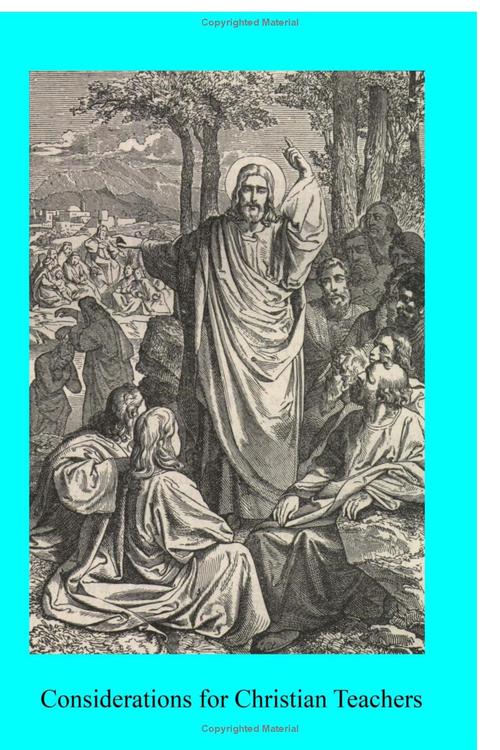
Considerations for Christian Teachers by Brother Philip
Introduction:
In these pages, destined for the spiritual welfare of Catholic teachers, one
finds the pure spirit of the Gospel of Jesus Christ, as applied to the guidance of youth. The traditional principles and practice of Catholic pedagogy, together with the substance of Catholic truth, enrich greatly these meditations of the teacher on his daily work, and make them a kind of Bible of religious instruction. Every page is enlivened ,with the rare wisdom of Saint John Baptist de la Salle, and borrows from his experience, insight and sanctity, a marvelous charm and power.
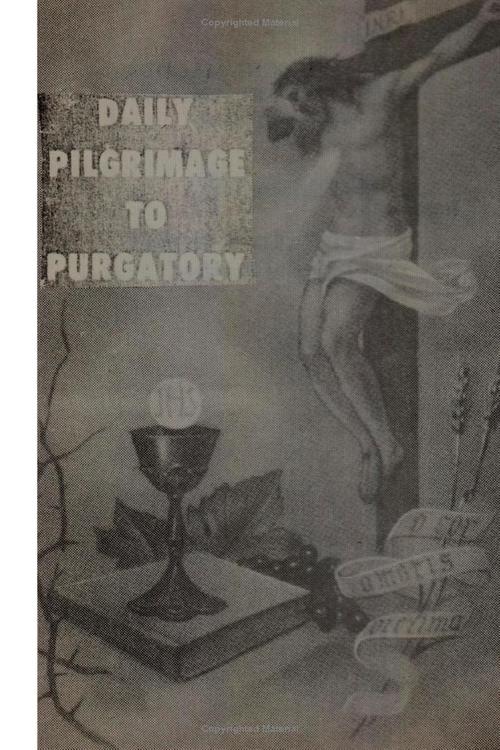
Daily Pilgrimage to Purgatory by Brother Hermenegild TOSF
Introduction:
In the writings of St. Margaret Mary we find the following exhortation: “In union with the divine Heart of Jesus make a short pilgrimage to Purgatory at night. Offer Him all your activities of the day and ask Him to apply His merits to the suffering souls. At the same time implore them to obtain for you the grace to live and die in the love and friendship of this divine Heart. May He never find in you any resistance to His holy will, nor any wish to thwart His designs in your regard. Fortunate will you be, if you succeed in obtaining deliverance for some of these imprisoned souls, for you will gain as many friends in heaven.”
May it please the divine Heart of Jesus to use this booklet as a means of spreading this work of sympathetic love for the Poor Souls everywhere.
The Funny Pharmacy
A joyful mind maketh age flourishing: a sorrowful spirit drieth up the bones. - Proverbs 17:22





Bertha's Easy Chicken Pot Pie

Ingredients:
1 recipe pastry for a 9 inch double crust pie
1 carrot, chopped
1 head fresh broccoli, chopped
2 boneless chicken breast halves, cooked and chopped
1 (10.75 ounce) can condensed cream of chicken soup
⅔ cup milk
1 cup shredded Cheddar cheese
½ teaspoon salt
Directions:
Preheat oven to 425 degrees F (220 degrees C).
Steam carrots and broccoli in a covered pot for 3 minutes, until slightly tender but still firm.
In a large bowl, mix together carrots, broccoli, chicken, soup, milk, cheese, and salt. Spoon mixture into pastry-lined 9 inch pie pan and cover with top crust. Seal edges and cut steam vents in top.
Bake in preheated oven for 30 minutes, until golden brown.
Mother's Own Apple Fritters

Ingredients:
1 quart vegetable oil for deep-frying
1 1/2 cups all-purpose flour
1 tablespoon white sugar
2 teaspoons baking powder
1/2 teaspoon salt
2/3 cup milk
2 eggs, beaten
1 tablespoon vegetable oil
3 cups apples - peeled, cored and chopped
1 cup cinnamon sugar
Directions:
Heat the oil in a deep-fryer or electric skillet to 375 degrees F (190 degrees C).
In a large bowl, stir together the flour, sugar, baking powder and salt. Pour in the milk, eggs and oil and stir until well blended. Mix in apples until they are evenly distributed.
Drop spoonfuls of the batter into the hot oil and fry until golden on both sides, about 5 minutes depending on the size. Fry in smaller batches so they are not crowded. Remove from the hot oil using a slotted spoon and drain briefly on paper towels. Toss with cinnamon sugar while still warm.
Video sermons and instructions: Timeless timely truths for living the Faith
15th Sunday after Pentecost - 2011
Birthday of the Blessed Virgin Mary
Getting the Gospel Right
Ep 6 The Cost of Being A Disciple Of Christ
Vatican In Exile Podcasts
Family Theater
Family Theater was a program created to promote family unity and each week saw a drama illustrating the importance of family life and prayer. The main reason for the success of this series was undoubtedly due to the numerous Hollywood stars that participated.
Cast: Bing Crosby, Gary Cooper, James Stewart, Gregory Peck, Shirley Temple Director: Fred MacKaye, Dave Young, Joseph Mansfield, Richard Sanville, Jaime del Valle, Mel Williamson, Robert O’Sullivan, John Kelley Producer: Father Patrick Peyton, Bob Longenecker Host: Father Patrick Peyton Writer: True Boardman , Father Patrick Peyton Announcer:Tony LaFrano
Ranger Bill
Ranger Bill was a Christian radio adventure serial, and aimed at the younger generation. This turned out to be one of the most successful radio broadcasts, and with an amazing longevity of over twelve years. The very first fifteen minute episode was aired on October 2, 1950, but this later changed to a half hour episode, beginning May 14, 1954 and running right through until 1962.
Catechism Corner
Catechizing with a fresh perspective. Using the Holy Scriptures and the Catechism of the Council of Trent as foundational bases.
Lamp and Light Bible Study
Lamp and Light Bible Study is not a ‘theological’ study but a ‘life application’ study.
Our in house Priest will show that every single book of the Bible is interesting and has a message for us today. It deals with key aspects of the Christian life and speaks more to the heart than to the head.
Sunday Sermon
The Ave Maria Hour
The Ave Maria Hour first aired on April 26, 1935, on radio station WOR. It was presented by the Franciscan Friars of the Atonement to help the humanitarian work of St. Christopher’s Inn, and during that first show, Servant of God Father Paul of Graymoor talked about the charity involved in caring for the men of the Inn. In 1937, it was estimated that nearly 1 million listeners were tuning in each week, which resulted in large pilgrimages coming to Graymoor.
The popular Ave Maria Hour continued until 1969, encouraging and entertaining listeners. It was heard on more than 350 stations as well as on the Armed Forces Radio Service. Recorded in a studio in New York City and on the grounds of Graymoor, these dramatizations of the lives of the saints, stories from the Gospel, and inspiring accounts of faith received many awards for religious radio programs sponsored by the American Exhibition of Educational Radio and Television programs of Ohio State University. It received the Golden Bell Award in 1959, presented by Ed Sullivan on live television.
The Bible In Living Sound
THE BIBLE IN LIVING SOUND, the original dramatized audio Bible stories . . . really gets kids excited about the Bible! These 450 spiritually enthralling stories, re-enacted with music and lively sound effects, leave impressions of lasting beauty and wonder, putting the listener in the Red Sea at the crossing, beside David as he confronts Goliath, with Mary and Joseph in the stable, and there at the foot of the Cross. These stunning dramatizations captivate listeners of all ages as they are enriched by visualizing the values taught in God's Word. Listeners want to hear these audio Bible stories again and again.

Day Three of Creation
Genesis 1:9-3
God also said: Let the waters that are under the heaven, be gathered together into one place: and let the dry land appear. And it was so done.
10 And God called the dry land, Earth; and the gathering together of the waters, he called Seas. And God saw that it was good.
11 And he said: Let the earth bring forth the green herb, and such as may seed, and the fruit tree yielding fruit after its kind, which may have seed in itself upon the earth. And it was so done.
12 And the earth brought forth the green herb, and such as yieldeth seed according to its kind, and the tree that beareth fruit, having seed each one according to its kind. And God saw that it was good.
13 And the evening and the morning were the third day.
On day three, God was making the earth take on definite shape as He commanded the land to rise up out of the water. Later, on this same day, He commanded the plants to be brought forth. As these plants would be growing on this land surface, God must have made this dry land with beautiful, nutritious soil to provide what the plants needed.
One Continent?
Because God said that he gathered the waters “together into one place,” creation scientists believe that the land would also have been in one place. What I mean by this is the possibility that there was actually only one continent originally- one major land mass on the earth when it was made. This continent may have had a variety of shapes around its coast, with long narrow areas jutting out, and so on.
The shape of the land may have divided up the water around the globe so that the areas of water could be called “seas”-which means there was more than one sea. Think about the continent of Australia today. On the east side we have what is called the “Pacific Ocean,” on the west side the “Indian Ocean,” and in the south the “Great Southern Ocean.” So, we have a number of different oceans, but it is one body of water. Thus, even if the original earth only had one continent, there could still be a number of “seas.”
If there was only one continent originally, then something has obviously happened to break up this one land mass to form all of the various continents that exist today. This likely happened during the catastrophic event of Noah’s Flood (this will be discussed in future articles).
High Mountains?
There is no universally accepted standard definition for the height of a mountain or a hill, and this can make it difficult to differentiate between the two.
Checking the Hebrew for “hills” and “mountains” in chapter 7 verses 19 and 20, we see the same word ‘har’ is used for both. Checking on har in a Hebrew dictionary such as Strong’s shows this word has been given Strong’s reference number 2022. The usage range of har is similar to our use in English where a hill becomes a mountain when it passes 1,000 feet, but the 1,000 feet is our arbitrary definition.
So, what was the land surface like when it was first made? For instance, would there have been high mountains like we have today? I doubt there were really high mountains, because we are told that the waters from the great flood covered “all the high hills (Hebrew: har) under the whole heaven”. Now there’s not enough water in the oceans to cover all the mountains that exist today. But scientist have calculated that if all the land surface and the ocean basins that exist today were leveled out so that there were no hills, valleys, deep as they are now, and the mountains not as high, there would have been enough water to cover the entire earth just as it says in Genesis chapter 7. This would mean that the high mountains and the deep oceans were formed toward the end of the Flood and even after the Flood.
Now Psalms 104 is a psalm that David wrote that tells us a lot about creation. In fact, David puts a lot of the information about creation in this psalm in the same order as the days of creation in genesis chapter 1. He also adds in lots of other information for us as well. For instance, in verses 6-9, some scholars believe David might be referring to what happened at the end of Noah’s Flood.
5 Who laid the foundations of the earth, that it should not be removed for ever.
6 Thou coveredst it with the deep as with a garment: the waters stood above the mountains.
7 At thy rebuke they fled; at the voice of thy thunder they hasted away.
8 They go up by the mountains; they go down by the valleys unto the place which thou hast founded for them.
9 Thou hast set a bound that they may not pass over; that they turn not again to cover the earth.
In these verses, David seems to be saying that after the water covered the entire earth, God raised up the mountains and then sunk the ocean floor so that the water could runoff the earth. This would also explain why there are marine fossils on the tips of mountains like the Himalayas. The creatures were buried during the Flood and then the sediments were raised up as mountains formed at the end of the Flood. He then tells us that God set a boundary so the water would never again cover the earth. This fits with the end o f the Flood as described in Genesis 9:11: I will establish my covenant with you, and all flesh shall be no more destroyed with the waters of a flood, neither shall there be from henceforth a flood to waste the earth.
God promises He will never again judge the earth with such a global flood. Now we have seen many local floods since this time. So this verse is obviously referring to God never judging again with a global flood. We know though that the earth is going to be judged again, but with fire next time (II Peter 3:10).
So it seems that at the end of Noah’s Flood, God raised up the mountains and made the deep oceans. This means the water from Noah’s Flood is in today’s oceans. Remember that the next time you are looking at the ocean! You are looking at the water that once destroyed the entire earth-the water that God used to judge this earth because of wickedness. We could even use the ocean as a topic to witness to people, sharing how God judges’ wickedness as a righteous judge, but provides a way of salvation for those who obey His Word.
What did this original land surface look like then? Well, we know there were hills, because Genesis 7:19 says that the “high mountains” were covered with water during the Flood. The mountains were nowhere near as high as the mountains we have today, as I have explained. So there were probably hills, valleys, flat areas, lakes and rivers. In Genesis 2:10 we are told about a river in the Garden of Eden. There must have been plenty of places like rivers and lakes with lots of fresh, clean water, because God made many kinds of land animals to live on the earth on day six.

Catechism Catch-Up
“Strong Men Retain Riches,” Women Shall Be “Keepers At Home”

Taking care of a responsibility in bread winning and homemaking without succumbing to materialism and greed.
No one has to teach us to be lazy and avoid responsibility. We come with that tendency. Many of us had parents who put forth effort to train us to overcome our aversion to work. This helps, but does not cure our nature.
Work is one of our Creator’s gifts to mankind. Even before the Fall of man, God told Adam to dress and keep the garden. The triune Godhead works in the world constantly (John 5:17; Colossians 1:17).
Entitlement, the feeling or belief that one deserves to be given something, such as special privileges, is a part of the human nature. We can be very grieved if we have to fit in and do our part. Other people’s clutter annoys us, our own somehow looks homey.
Being irresponsible, or lacking a sense of responsibility, is a twin to entitlement. We can walk right by duties and not notice them, unless it is something assigned to someone else to do.
When two selfish people marry they are in for major adjustment. Becoming married is a major step into the adult world. The privilege of living as husband and wife carries the responsibility to make it work. Weeds in the garden, dirt in the basement, hinges that need to be oiled, bills that need to be paid, etc. are all things that will not take care of themselves.
The Bible teaches it is a virtue to take responsibility willingly. If we find it in our hand to do, let us do it with all our might! Fathers, don’t complain and/or avoid the chores or earning a living for the family. Mothers, keep your house tidy and make sure meals are prepared for the family on time. The work will help you keep your mind where it needs to be, off yourself and on your family. This is your calling and you will find satisfaction in what you do for others.
But it all has to do with balance. There also comes a time to be satisfied, to stop and enjoy life. This lesson also explores the virtue of contentment.
Whatsoever you do, do it from the heart, as to the Lord, and not to men: Colossians 3:23
One generation should teach the next how to take their place in responsible family living. Modern ideas are often inroads from Satan through a godless society.
The older women should teach the younger women. Grandma had a practical head about how to do her work, that children should be disciplined so they don’t keep parents from their tasks, and how children can be taught to help in the work. Nowadays, grandma is pushed aside. She can hardly keep up with modern technology, so she is regarded as quaint and her ideas as being out of date.
Let’s examine some of the ways we now look to experts. We have been convinced that we should have smaller families so each child can have more of their parent’s time and resources. Supposedly smaller families are happier. One of the repercussions of this is that siblings don’t condition each other nearly like they did in large families. Parents do have more time to pursue interests outside the home, but the children expect the world should revolve around them. They believe parents exist to serve them. That raises their selfishness levels.
Seeing the obvious evidence of their selfishness, then we need to consult experts who in turn treat our children with toxic medications. Experts tell us that disciplining a child with corporal punishment teaches a child to use violence to get his way. The fact is that violence is inherent in the child’s nature. Corporal punishment is the only way to deliver a child from himself.
God’s plan of sending children and how children should be disciplined so they do not disturb home life is the way our godly grandparents understood. Their wisdom, acquired by experience and years of observation, should be highly treasured, not shoved aside.
God created husband and wife to serve as a team, each taking his role in unselfish service for the family.
Godly women are to be obedient to their own husbands. This indicates a mutual dependency upon each other. The husband learns of the wife’s needs and challenges as she seeks his counsel. He gives direction to these issues. She listens and is obedient. More help is needed. He steps into the challenge to assist her. This is the teamwork God is looking for.
Many a couple gets married and seemingly before they know it are carrying the load of a half dozen or more children. The load increased one child at a time (usually), so gradually that they can hardly believe they are able to carry a load that at one time would have staggered their imagination.
It works because each one supplies what is needed for the other. The husband protects his wife, brings home the financial resources needed, and gives his wife the counsel she needs to keep carrying her load. The wife, on the other hand, rises early and provides meals; she guides the children to do their part in their natural care of food and clothing. She provides the cheer and affection that are needed to keep the family functioning smoothly. She is taught to think soberly. This word means she is helped to have disciplined thinking. She chooses to see her work from an eternal perspective. She chooses to do what she knows she should do, not what she feels like doing. And she doesn’t have a mother (or grandmother) who is pitying her for the work she has to carry. Instead they are telling her, “You can do it. We did it with God’s help and you can too.”
Having a family of many children places a heavy load upon a husband and wife. When the parents have a vision of eternity and the enablement of God upon them, this teamwork can serve a vital role in the kingdom of heaven.
Is there such a thing as accepting that we now have more technology but we should still view our calling and responsibility as our forefathers did? Can we not see that while children bring financial responsibility and management, each “mouth” comes with “two hands”? We have dishwashers and automatic wash machines now, do we really need to follow the world’s thinking on family size?
People in the world with temporal goals make tremendous sacrifices for a temporary honor. Athletes spend grueling hours of exercise and training for a corruptible crown. Business executives spend hours away from home or traveling in order to climb a corporate ladder. Police step into the line of fire because they consider it their duty. Should not we who see eternity as our goal and souls as the most important asset of all be willing to serve a family’s needs without grumbling and complaining? Don’t we have the greatest and most worthwhile goal?
Slothfulness, self-pity, and procrastination drain a parent of energy far more than honest service and creativity.
The world believes in their pleasure seeking so they heap pity on “stay-at-home-moms” and tied-down dads. Will we buy into that mindset? Will we believe we have to go on shopping excursions, or mini-honeymoons, etc. in order to have fulfillment in life?
Or will we choose to believe the truth; that we will find the greatest fulfillment in life only when we are living our lives for our Creator’s purpose? When we tell ourselves that we don’t have enough energy for our work, then we won’t have the energy. When we feel sorry for ourselves, we reap a harvest of depression. When we push off our least desirable chores, then each work staring us in the face looks more difficult than the one we just did. Why not tackle our least desirable tasks first? Then we can reward ourselves with what we like to do.
Parents, life is not a playground. It is a battlefield. Step into the task as a couple linked together with God to reap eternal reward. He has promised He will never leave us nor forsake us.
Children should be welcomed in their efforts to assist in helping in the family, given age appropriate responsibilities, be taught to do the work brought of normal living and help care for younger siblings. It seems there are two stages in a child’s life regarding helping with work. At an early stage when they are too young to help, they want to help. They try and only get in the way.
Later when they could help they have developed an aversion to it. Parents need to go against their own natural tendencies and welcome a child in his efforts to please. God has placed this nature in a child, and it should be encouraged. It is amazing how many things a young preschooler can do if parents take the time to show them how and reward them for their contribution. This helps win a child’s heart to his parents. Later in the child’s development, for his own personal satisfaction and well-being, he must be shown how to do his work and given a vision of the rewards for doing it well. Parents will need to follow through to make sure the chores are kept after. This is where the “stitch in time” proverb fits in. It takes longer to train the child as your delegate, but in the long run, his training will serve to give you more time.
Fathers should pursue vocations that complement family life and do their part in helping manage the family.
Our present vocational structure often takes fathers away from home for the greater part of their waking hours. If fathers are flexible and mothers are willing to live on a lower income, there are times when home based or shop based businesses can be developed. (We do not want to rule out the family farm, but when farms become mega-businesses, have we really gained anything with a home based business?) The advantages of dad working at home or with his children cannot be overemphasized. Granted of course that dad has come to rest with making a simple income for the family. If his heart is motivated by greed, there will be no rest for him or his family regardless where he works.
When husband and wife put God first and diligently serve Him in what He chooses for their lot, God can open the windows of heaven and give them abundance for their needs. God wants to partner with parents in their earthly sojourn.
(Verses To Read)
With Quietness...Work
Titus 2:3 -5
1Timothy 5:14
2Thessalonians 3:7,10-13
A Little Slumber...
Proverbs 31:11-15,28-31
Proverbs 13:11
Proverbs 24:30-34
Godliness With Contentment
Proverbs 23:4-5
1Timothy 6:6-10
Proverbs 15:27
Proverbs 30:8
Praying For God’s Provision: Asking In Accord With God’s Word

God is aware of our physical needs, and it is His delight to provide for His children. When we face times of need or we want increased funds for a specific project, we are to bring our petitions to God. By seeking Him first, we will be able to discern God’s direction through the provision or lack of funds, and He will be glorified as He provides for us and directs us according to His will.
Honor these truths as you ask God to provide for your needs according to His riches and glory in Christ Jesus:
Ask as a Child of God
The Lord’s Prayer begins with these words: “Our Father which art in heaven” (Matthew 6:9).
As God’s children, we can depend on His fatherly care. “Be not solicitous therefore, saying, What shall we eat: or what shall we drink, or wherewith shall we be clothed? For after all these things do the heathens seek. For your Father knoweth that you have need of all these things. Seek ye therefore first the kingdom of God, and his justice, and all these things shall be added unto you.” (Matthew 6:31–33).
Ask in the Name of Jesus Christ
Our justification before God rests in the work of Jesus Christ. “...but you are justified in the name of our Lord Jesus Christ, and the Spirit of our God. ” (I Corinthians 6:11). It is only in the name of Jesus and by the Holy Spirit that we can approach God and make requests as His children. Therefore, when we pray “in Jesus’ name,” we are acknowledging our need for Jesus, recalling God’s mercy toward us when He gave us the gift of salvation in Christ Jesus, who gave Himself for us.
As we pray in the name of Jesus, our prayers should reflect the nature and character qualities of Jesus that are represented in His name. For example, Jesus is the Light of the World. Therefore, asking God to bless a shady business deal would not reflect Jesus’ nature, since as Light, He would expose the wrong instead of approving dishonesty. Our prayers should align with the purity, mercy, justice, and righteousness of Christ.
Ask for the Sake of God’s Glory
The Lord’s Prayer continues with this phrase: “Hallowed be thy name” (Matthew 6:9). God’s glory is precious to Him, and He consistently displays it before men. As you pray, frame your requests in light of God’s glory and His reputation.
For example, when the Israelites sinned against God in the wilderness, He was ready to destroy them until Moses prayed that He would consider His covenant and His reputation. “And praying, I said: O Lord God, destroy not thy people, and thy inheritance, which thou hast redeemed in thy greatness, whom thou hast brought out of Egypt with a strong hand. Remember thy servants Abraham, Isaac, and Jacob: look not on the stubbornness of this people, nor on their wickedness and sin: Lest perhaps the inhabitants of the land, out of which thou hast brought us, say: The Lord could not bring them into the land that he promised them, and he hated them: therefore he brought them out, that he might kill them in the wilderness,” (Deuteronomy 9:26–28).
Also, in the days of Israel’s evil King Ahab, God moved to overcome the armies of Syria, because the Syrian captains had taunted that God was not able to overcome them. Even though Ahab’s ways displeased God, He gave Ahab the victory to prove His power over the Syrians. “And a man of God coming, said to the king of Israel: Thus saith the Lord: Because the Syrians have said: The Lord is God of the hills, but is not God of the valleys: I will deliver all this great multitude into thy hand, and you shall know that I am the Lord.” (I Kings 20:28).
Ask on the Authority of God’s Word and His Church
Our prayers should be guided by the Word of God and the Church. As we study the Bible to gain understanding and to learn about God’s nature, and follow the commandments given by God through His Church, we will have more confidence and direction in prayer.
When Nehemiah prayed for God to allow the Israelites to rebuild the walls of Jerusalem, he based his prayer on what he knew of God’s nature and on a clear promise in God’s Word, and in the commandments that God gave Moses. Before he went to appeal to King Artaxerxes, he prayed with these words:
I beseech thee, O Lord God of heaven, the great and terrible God, that keepeth covenant and mercy for them that love him and observe his commandments: let thine ear now be attentive, and thine eyes open, that thou mayest hear the prayer of thy servant, which I pray before thee now, day and night, for the children of Israel thy servants, and confess the sins of the children of Israel, which we have sinned against thee: both I and my father’s house have sinned. We have dealt very corruptly against thee, and have not kept the commandments, nor the statutes, nor the judgments, which thou commandest thy servant Moses. Remember, I beseech thee, the word that thou commandest thy servant Moses, saying, If ye transgress, I will scatter you abroad among the nations: but if ye turn unto me, and keep my commandments, and do them; though there were of you cast out unto the uttermost part of the heaven, yet will I gather them from thence, and will bring them unto the place that I have chosen to set my name there. Now these are thy servants and thy people, whom thou hast redeemed by thy great power, and by thy strong hand. O Lord, I beseech thee, let now thine ear be attentive to the prayer of thy servant, and to the prayer of thy servants, who desire to fear thy name: and prosper, I pray thee, thy servant this day, and grant him mercy in the sight of this man (Nehemiah 1:5–11).
Ask to Fulfill God’s Will
The Lord’s Prayer continues, “Thy will be done in earth, as it is in heaven” (Matthew 6:10). When we ask God to provide for us, our petitions should be based on what we know of His will according to the Bible and the Church. As we understand how the Church and God’s Word relates to our lives, we can have a clear basis for effectively praying about our relationships, circumstances, finances, possessions, priorities, and attitudes.
For example, we know that it is God’s will that we walk in holiness. (See I Thessalonians 4:7.) Therefore, if we seek money, possessions, or promotions that would hinder Godly living, we are not praying according to God’s will. Also, God wants us to learn patience, and patience comes through tribulation. (See Romans 5:1–5.) Therefore, if we pray for God to remove a difficult situation that He has designed as a tool to teach us patience, our prayers are not in line with God’s will.
We know that the Church says that we are to be gathered togather on Sundays, “to keep the Sundays and Holy Days of obligation holy, by hearing Mass and resting from servile work” -1917 Catholic Encyclopedia, Commandments of the Church. So if we pray for a new fishing boat to take out on the lake on Sunday, then we know that is not in line with Gods commandment given by the Church. Likewise, if we are praying for a job to take care of our family, and a job presents its self that requires you to work on Sunday, you know that it is not an answered prayer from the Lord because he would never go against His Word.
The prophet Daniel discerned that it was God’s will for His people to return to the Promised Land, which led him to fervent prayer: “The first year of his reign, I Daniel understood by books the number of the years, concerning which the word of the Lord came to Jeremias the prophet, that seventy years should be accomplished of the desolation of Jerusalem. And I set my face to the Lord my God, to pray and make supplication with fasting, and sackcloth, and ashes. And I prayed to the Lord my God, and I made my confession. . .” (Daniel 9:2–4).
Ask With a Discerning Heart
God promises to provide for our needs, which include food, clothing, and shelter. When God provides for these needs, we should not put those resources toward other things. For example, a person may enter into a major financial obligation and presumptuously expect God to provide the funds for it. Then, when God provides funds for food or clothing, that provision is mistakenly seen as evidence of His approval of the large financial obligation. It is important to discern between God’s provision for our basic needs and His provision in other areas.
Ask in Accordance With Scriptural Principles
Scripture relates that the laws of the harvest impact our giving and receiving. When the Apostle Paul urged the Corinthian believers to give cheerfully and generously to meet the needs of others, he said, “. . . He which soweth sparingly shall reap also sparingly; and he which soweth bountifully shall reap also bountifully” (II Corinthians 9:6). A sower knows that he will reap what he sows, where he sows, more than he sows, and in a different season than he sows. Reaping the harvest requires patience!
In the life of Christ and the experience of the Apostle Paul and others, God often provided for their needs through the gifts of those to whom they had ministered. Also, in the early Church a widow’s support was based on her investment in the lives of others: “Let a widow be chosen of no less than threescore years of age, who hath been the wife of one husband. Having testimony for her good works, if she have brought up children, if she have received to harbour, if she have washed the saints' feet, if she have ministered to them that suffer tribulation, if she have diligently followed every good work.” (I Timothy 5:9–10.) We should lead a generous life and trust God to provide for our future needs.
Ask Without Telling God How to Provide
If we assume we know how God will provide for our needs, we can easily develop attitudes of presumption, impatience, and ungratefulness, along with a tendency to show favoritism to those who have much to give. When God does not provide in the ways we expect, our disappointment can breed resentment toward God and the people to whom we looked for assistance.
God wants our focus to remain on Him for all of our provisions. For this reason, He will often provide what we need through totally unexpected sources. His resources and frame of reference reach beyond what we can comprehend!
Ask Without Demanding to Be “Repaid”
Sometimes when people give money, they expect God to give the same amount of money back to them. It may be that God will provide funds, but we should not count on them. Instead of funds, He may provide the actual items we need, new or used. He may provide intangible gifts, such as increased faith, joy, and peace. He may bless what we already have and cause it to last, as He did when the children of Israel were in the desert for forty years and their clothes and shoes did not wear out. (See Deuteronomy 29:5.)
Ask in Surrender to God’s Will
It is tempting to manipulate a situation so that what we desire comes to pass. However, taking a situation into our own hands usually leads to conflict, frustration, and discouragement. In order to truly seek God’s will and not our own, we should consider the benefits of receiving our request and the benefits of not receiving our request.
In this way, our expectations balance out and we can pray with a heart surrendered to God, trusting that He will do what is best for us and most glorifying to Him. When we have just as many reasons to thank God for not granting something to us as we have for receiving something, then we can take true delight in seeing God perform His perfect will, whatever it may be.
“Rejoice in the Lord always; again, I say, rejoice. Let your modesty be known to all men. The Lord is nigh. Be nothing solicitous; but in every thing, by prayer and supplication, with thanksgiving, let your petitions be made known to God. And the peace of God, which surpasseth all understanding, keep your hearts and minds in Christ Jesus.” (Philippians 4:4–7).
To Learn More Principles For Life Go To: Resources: Principles of Life

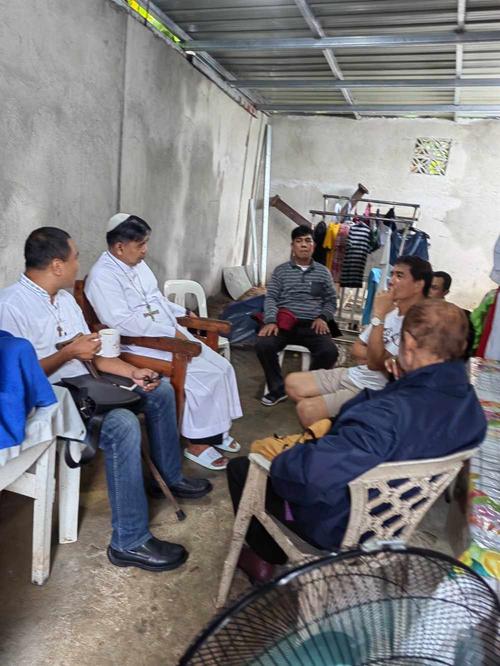






Enjoying the Olive Tree? Why not subscribe today? Click here to go to the FREE scubscription page!

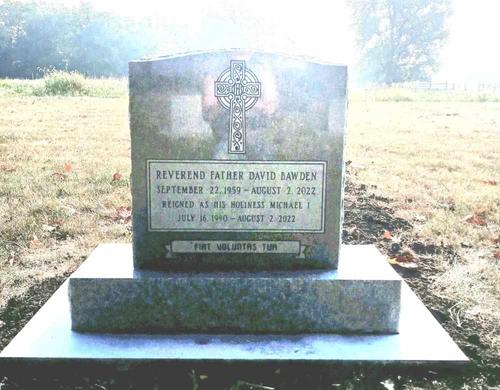 |
IN MEMORIAM

Enjoying the Olive Tree? Why not subscribe today? Click here to go to the FREE scubscription page!


- Please continue to pray for the repose of the soul of the Holy Father, Pope Michael I.
- Your prayers and support are asked for the House of Prayer in Topeka Kansas.
- Your prayers and support are asked for in a practical way for our domestic missionary work: for traveling expenses to offer mass in other states as Society of Saints Paul And Silas (SSPS) missionary priest travel. Can you help?
- Please pray for the preparations for the Coronation of Pope Michael II on October 28.
- Please pray for those who will be consecrated Bishop in October by His Holiness.
- Please pray for the health of Deacon Stephen and his dear wife.
- Be sure to keep St. Helen Catholic Mission in your prayers. Why not go on over to the site now and see what they have to offer and how you might be able to help!
- We are all praying especially for you, too. May you correspond with every grace of God!
- In what other needs or intentions may we pray for you? Let us know at vaticaninexile@gmail.com
- Let us remember that the Church runs on prayer. Without your prayers, God will not work in hearts and souls to bring them to a knowledge of the truth. (I Timothy 2:4)


To Donate online go to:
Donations

To Donate by Mail:
Our address is
Vatican in Exile
423 NE Grattan ST
Topeka, Kansas 66616
Make Checks payable to:
Vatican in Exile











 Follow
Follow


